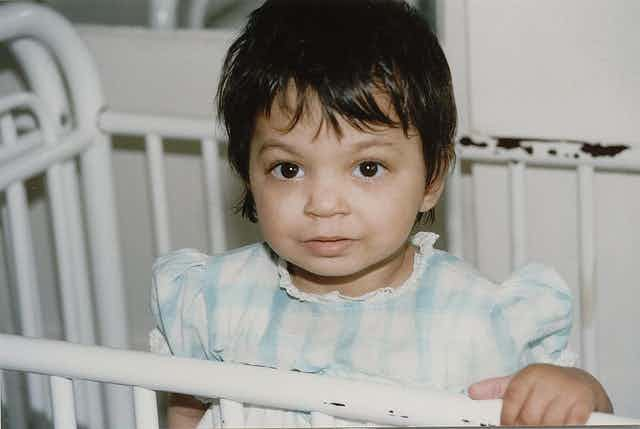Donald Trump’s announcement of the reinstatement and reinforcement of the “global gag” – which means the US will no longer fund any non-governmental health organisations working outside the US that give information about abortion – will have a devastating impact in some countries. I know because I have witnessed it happen before.
In 1990, as a young reporter specialising in women’s issues, I travelled to Romania a few weeks after the revolution that deposed the dictator, Nicolae Ceaușescu. While I was there, I spent time with Francu – a mother of two. In my mind’s eye, we are in a bare Bucharest hospital corridor which doubles up as recovery room. Francu is relaxed and smiling although she’s about to have an abortion. But that’s because this one is going to be performed by doctors.
She’d performed the last one herself using dirty rubber piping and had been in near-death agony afterwards. But the ban on abortion at the time – and the ban on even receiving information about abortion – meant she’d had to deal with the blood, pain and risk of death in secret.
The reason she’d got to this point was hidden in another ward. There, I encountered hundreds of Romania’s “orphans”. They lay under once white blankets, in little glass boxes like museum exhibits behind glass. The room was as quiet as a provincial museum. At the time, having little experience of babies, I did not realise that the lack of crying was a sign of emotional deprivation. The nurses were kind but they were few and the babies many. The nurses could not attend to them when they cried so the babies had given up crying. It saved energy. These “orphans” probably had parents – but they’d been given away because their parents could not feed the children they already had.

The reason for “Romania’s orphans” was Ceaușescu’s fixation on achieving a larger workforce. Measures to grow the birth rate included a near-complete ban on abortion – and information about it – combined with extremely limited access to contraception (though some was smuggled in). There was workplace pregnancy-testing to ensure women didn’t arrange abortions themselves.
It was a policy which gifted Romania the highest maternal mortality rates in Europe, the highest number of deaths from abortion, and a generation of emotionally afflicted, malnourished “orphans” raised in miserable conditions until, after the revolution, charities (and philanthropists such as JK Rowling) supplied help and funds.
In Romania before the revolution it was illegal to have an abortion, it was illegal to talk about abortion, it was illegal to give anyone information about abortion. Yet as my experience shows – and works such as Gail Kligman’s The Politics of Duplicity, Controlling Reproduction in Ceaucescu’s Romania confirm – women still had abortions. Some of the women I interviewed had friends who died from illegal abortions, but that didn’t stop them having one that was equally dangerous.
Backwards step
This is why Trump’s reinstatement of the “Mexico City” policy on abortion and aid is so retrograde. All that will happen, as activists have pointed out, is that in developing countries such as Nepal and in Sub-Saharan Africa life chances will be diminished and the abortion rate may even go up.
This result was observed in a World Health Organisation study of a previous iteration of this policy which was brought in by George W Bush in 2001 and was rescinded in 2009 by Barack Obama.
The death rate of women in these countries will also climb. In the first year after abortion was legalised in Romania, the maternal death rate fell by 50%.
This “gag” could have been offset if it had been matched by a vast increase in federal funds for contraception in those countries which are going to be affected. But – no surprises here – that hasn’t happened.
This year is the 50th anniversary of the Abortion Act in the UK. The figures for death from illegal abortion prior to that year are hard to confirm but the Royal College of Obstetricians and Gynaecologists states they were the leading cause of maternal death in the 12 years before the Act.
If women in a rich country died then through a lack of information and access to legal abortion, how much worse the plight of women in developing countries today. What this means globally is hungrier babies, reduced life chances and the needless death of young women in countries which are already struggling.

